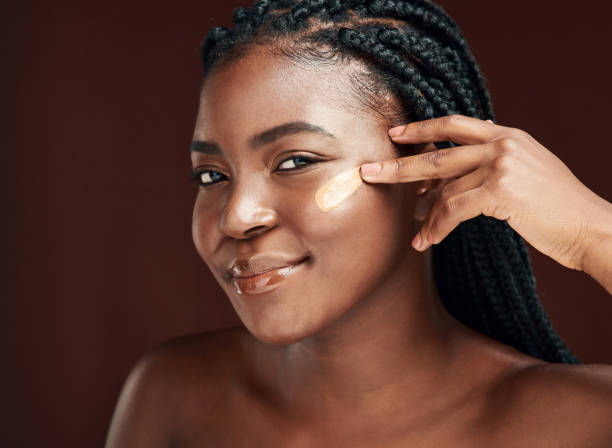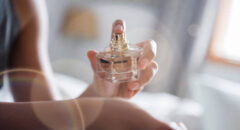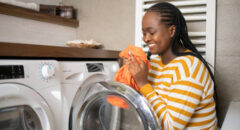
Eczema affects around 31.6 million individuals in the United States, accounting for more than 10% of the population. Everyone can have eczema. Ten percent of Black Americans, 11% of whites, 13% of Asian Americans and Pacific Islanders, and 13% of Native Americans have it. hyperpigmentation
Eczema, Irritation, & Scratching
Itching is the most bothersome sensation for individuals suffering from eczema. It's like you can't stop until you know the itch is 100% gone. But that doesn't happen because many individuals scratch to relieve irritation, which feeds the itch-scratch cycle and only makes things worse.
While eczema is not communicable, scratching excessively might cause it to spread to other places of your body. Scratching causes the skin to split or bleed, which allows germs to enter the body more readily.
Finally, scratching may cause the skin's color to alter; and no one likes an uneven skin tone.
RELATED: How To Choose the Best Eczema Product For Your Skin
Two Types of Pigmentation
Scratching the skin, as previously stated, may result in skin color, texture, and general appearance changes. Hypopigmentation and hyperpigmentation are two forms of pigment alterations.
Color loss is caused by hypopigmentation. Hypopigmented individuals may detect areas of skin that are lighter in color than their regular skin tone.
Hyperpigmentation, on the other hand, is a darkening of the color. Both forms of pigmentation show more prominently on darker skin tones, although they may present on any skin tone.
Some individuals may be distressed by the change in the look of their skin, which may impact their quality of life. It can create some self-consciousness about appearance—in adults and children.
Hyperpigmentation develops when external or internal causes cause an increase in melanin synthesis. The skin is darkened, particularly in places regularly exposed to the sun.
Eczema-related hyperpigmentation might manifest as little pimples, papules, or more severe lesions. However, the more severe the inflammation, the more noticeable the hyperpigmented area is going to be. The sun may aggravate its symptoms by darkening the afflicted regions and extending the time it takes for them to disappear.
Understanding How Different Skin Types Are Affected
Skin type affects eczema symptoms. On lighter skin, the pattern is inflamed, red or dark pink areas with dry, itchy skin that oozes with small vesicles in severe flares (blisters). On darker skin, inflammation is shown as hyperpigmentation and is more modest; therefore, redness is frequently not observed. Consequently, eczema's severity is often underestimated. Sometimes healthcare providers don't initially recognize the severity of hyperpigmentation in children of color.
Post-inflammatory hypo-and hyper-pigmentation may take months to cure in people with darker skin, and the discoloration can often be more concerning than the eczema itself. The scarring is harder to eliminate because it becomes a cycle within itself if the medication is not applied precisely how it states. The hyperpigmentation starts dwindling because the irritation is not present, and you're not scratching as much to cause inflammation; but, as soon as there is a flare-up, it's like starting all over with trying to treat the hyperpigmentation.
Hyperpigmentation in eczema is induced by inflammation, which encourages melanocytes to enhance melanin production (the process of making skin pigment). Increased production transfers pigment to the epidermis (the top layer of the skin). Scratching or scraping the melanin releases pigment so darker skin types have hyperpigmented patches during eczema flares. Follicular prominence is another characteristic of darker eczema—this kind of eczema shows as tiny, itchy pimples on the trunk and forearms.
RELATED: The Perfect Skincare Routine for Dry, Scaly Skin
Natural Home Remedies For Adults
Natural remedies may relieve eczema's itchy skin and may manage eczema to prevent flare-ups. Creams, natural products, diet, and lifestyle changes may also manage or prevent eczema outbreaks, especially in winter.
- Aloe gel. Dry, cracked skin is more prone to skin infections, which the antibacterial and antimicrobial properties in Aloe gel help prevent while soothing and mending injured skin.
- Apple Cider Vinegar. Vinegar contains a decent amount of acid in it. The skin is naturally acidic, but people with eczema may have less acidic skin than others, weakening the skin's defenses. Apple cider vinegar that has been diluted could help balance the skin's acidity.
- Colloidal Oatmeal. Prior research found that colloidal oatmeal moisturizer helped repair skin.
- Baths. Bathing helps eczema by moisturizing the skin, and a person with eczema requires more moisture since their skin's outer layer isn't working correctly. Moisturize 3 minutes after showering, so you retain as much moisture as possible when you use an oil-based moisturizer.
- Coconut Oil. Coconut oil's fatty acids may moisturize dry skin and eczema. Virgin coconut oil can protect the skin by reducing inflammation and strengthening the skin barrier.
- Honey. People have used honey to treat wounds for generations since it's antibacterial and anti-inflammatory. Honey helps heal wounds and boosts the immune system, which fights infections.
- Gentle Soaps & Detergents. Harsh chemicals in some laundry detergent can make eczema worse. Many body washes and cleansers have detergents in them, which help them foam up like soap. People with eczema are more likely to get dry skin from detergents and other things that make foam.
- Prescribed Medications. Make sure that when your healthcare provider prescribes eczema medication, you properly apply it to get the best treatment results.
Natural Home Remedies For Babies & Kids
Most home remedies are acceptable for babies and children; but always speak with a trusted healthcare provider before using. The following may help:
- Don't overdress a baby. Sweating might make eczema or heat rash itchier.
- Use mittens to avoid baby scratching.
- Apply a mild moisturizer often, avoiding the eyes and nose.
- Don't cover a baby's face with a scarf; infant car seat coverings are helpful. Check the baby's airflow regularly.
- Consult a doctor before washing a baby with apple cider vinegar.
- Children may take colloidal oatmeal baths but keep the water away from their eyes.
- Avoid over-bathing babies. Most babies require baths once or twice a week unless clearly dirty. Less bathing may avoid dry skin.
- Use baby wipes without scent or alcohol and calming components like aloe vera— sensitive skin wipes.
- Use eczema-safe baby shampoos. Look for "tear-free" eczema washes and avoid the child's eyes.









